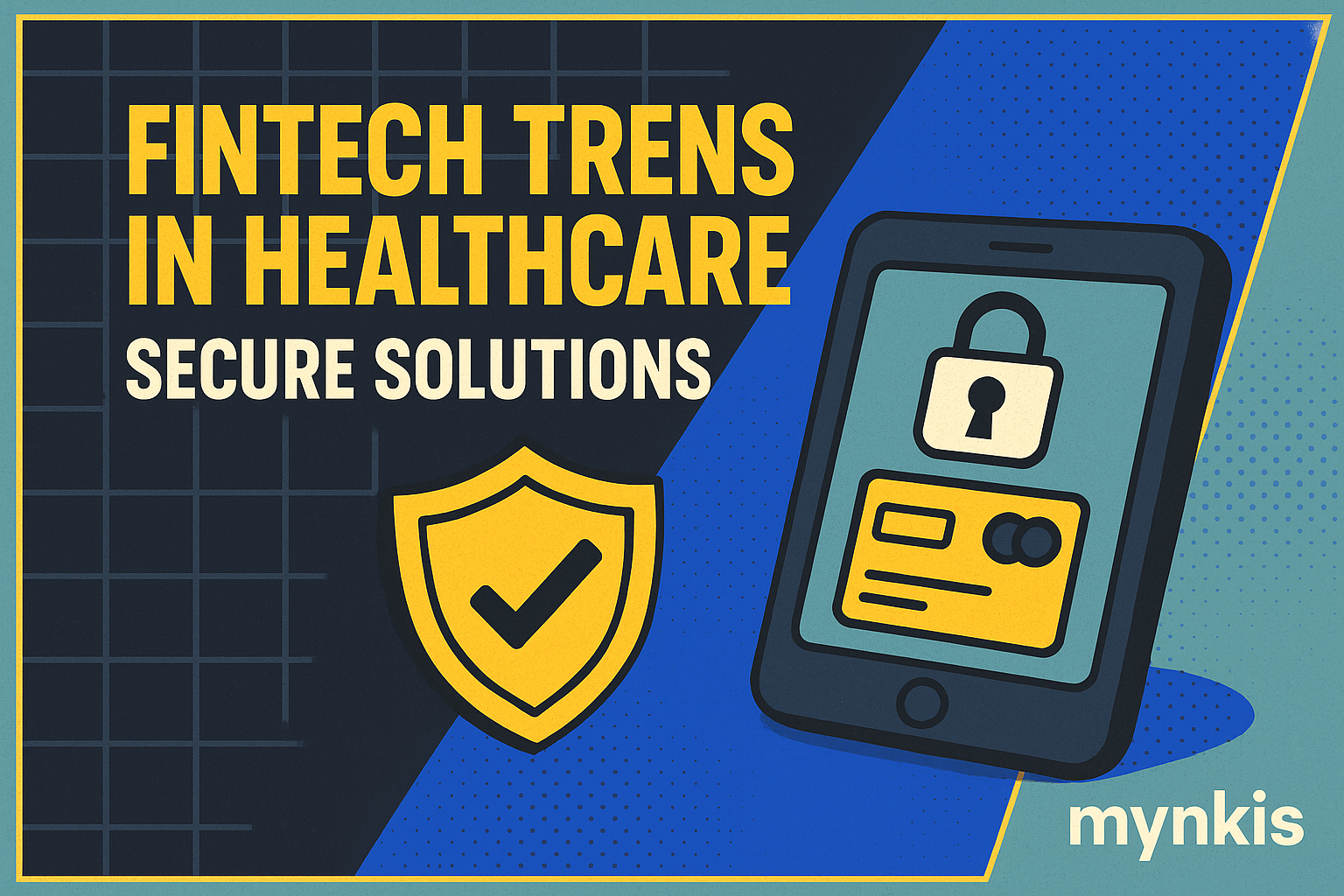Schedule a Demo
The integration of fintech in healthcare is not just a trend; it's a pivotal shift toward efficiency, security, and enhanced patient care. As an expert in the field, I've witnessed how advancements in fintech can completely transform the way clinics and hospitals manage patient data and financial transactions. This article delves into the most impactful fintech software development trends that healthcare providers should consider for their digital platforms.
Blockchain technology has surged to the forefront as a tool for securing patient data and ensuring transparent financial transactions. It's not just about cryptocurrencies; blockchain's decentralized nature offers a formidable defense against data breaches. In my interactions with healthcare IT specialists, they've expressed how blockchain can provide an immutable ledger for patient records, significantly reducing the risk of unauthorized alterations. Moreover, the use of smart contracts in blockchain can automate billing and payments, minimizing errors and delays.
Artificial Intelligence (AI) is revolutionizing how healthcare institutions manage their finances. AI algorithms can analyze vast amounts of data to predict cash flows, optimize budget allocations, and even detect fraudulent activities. I've seen firsthand how integrating AI into financial software can lead to more precise forecasting and risk assessment, ensuring that clinics can allocate resources more effectively to patient care and operational enhancements.
Regulatory technology, or RegTech, streamlines compliance with healthcare laws like HIPAA. By employing sophisticated software solutions, healthcare providers can automate compliance checks and audits, saving countless hours that can be redirected to direct patient care. The beauty of RegTech is its ability to stay current with evolving regulations, ensuring that your institution always operates within legal frameworks.
The rise of mobile payment solutions has introduced new conveniences for both patients and providers. In healthcare settings, enabling patients to make payments via their mobile devices can significantly improve the user experience. From my own experiences consulting with various healthcare systems, the implementation of mobile payment gateways has dramatically reduced administrative workload, leading to faster transaction times and improved patient satisfaction.
In today's interconnected healthcare ecosystem, the need for seamless data integration is paramount. APIs (Application Programming Interfaces) facilitate the connection between different software systems, allowing for real-time data exchange and interoperability. In developing custom healthcare software, leveraging APIs can lead to a more cohesive patient experience, from booking appointments to managing electronic health records and facilitating secure financial transactions.
Patient portals have evolved from simple information gateways to comprehensive platforms for patient engagement and financial management. Modern patient portals now integrate billing systems, allowing patients to view their accounts, pay bills, and manage financial agreements directly. It's empowering to see patients take an active role in their financial health, supported by intuitive and secure software solutions.
In healthcare, where sensitive data is the lifeblood of operations, robust cybersecurity measures are not just beneficial—they're essential. I've observed a growing trend toward employing advanced cybersecurity solutions like encryption and multi-factor authentication. Clinics and hospitals must adopt these technologies not only to protect their patients but also to adhere to stringent regulatory standards governing data protection.
The scalability of cloud technology has made it a go-to solution for healthcare financial systems. The ability to store and process large volumes of data in the cloud supports everything from revenue cycle management to predictive analytics. And let's not forget the cost savings—cloud solutions often provide a more affordable way for healthcare providers to manage their digital infrastructure, scaling resources according to demand.
The Internet of Things (IoT) extends beyond monitoring patient health—it's also reshaping financial processes in healthcare. IoT devices can help track equipment usage and maintenance costs, feeding valuable data into financial software to better manage budgets. While IoT integration requires careful consideration of security, the potential for improved financial efficiency makes it a compelling area for healthcare fintech.
Data analytics is transforming how healthcare providers approach financial decision-making. By analyzing patient data, billing patterns, and operational costs, analytics can reveal trends and anomalies that inform strategic choices. I've worked with clients who have used data analytics to refine their pricing strategies, optimize revenue collection, and anticipate market changes, thereby staying ahead in a competitive landscape.
Digital payment solutions in healthcare are evolving rapidly. We're seeing an increased focus on contactless payments and digital wallets. These technologies not only enhance the speed and convenience of transactions but also open new avenues for financial services, like personalized healthcare financing options. The shift toward digital payments is a trend that healthcare institutions can't afford to ignore.
To successfully integrate fintech into your healthcare strategy, consider these steps: assess your current financial software ecosystem, identify key areas where fintech can add value, and partner with experienced software developers to tailor solutions to your needs. Above all, ensure that the solutions you select prioritize patient data security and regulatory compliance.
Despite the many benefits, adopting fintech in healthcare presents challenges. The initial investment in new technologies can be substantial, and there's always the risk of staff resistance to new systems. Additionally, while technology offers unparalleled efficiency, the importance of human oversight and empathy in financial interactions cannot be understated. Clinics and hospitals must balance the adoption of fintech with the human elements that make healthcare personal and patient-centered.
The future of healthcare fintech is about embracing innovation responsibly. While new technologies will continue to emerge, the ultimate goal remains enhancing patient care and financial transparency. Clinics and hospitals that stay informed about and engage with these trends will be well-positioned to provide the highest level of service and financial accountability.
